DUBAI: Tehran’s proxies have been ramping up their activities on the battlefields of the Middle East in recent weeks. In Iraq, Syria, and Yemen, forces loyal to the Iranian regime have been busy, escalating attacks against US and Saudi targets.
One spark for this intensification may be the second anniversary of the assassination of Qassem Soleimani, the Iranian general who set in motion much of the chaos still ravaging the region. But some analysts believe the prime reason is the Iran-US nuclear talks that have resumed in Vienna.
As the talks progress, albeit painstakingly, Iran’s officials have been increasingly upbeat, believing it is on the verge of salvaging a deal that would ease crippling US sanctions on its financial institutions and political bodies.
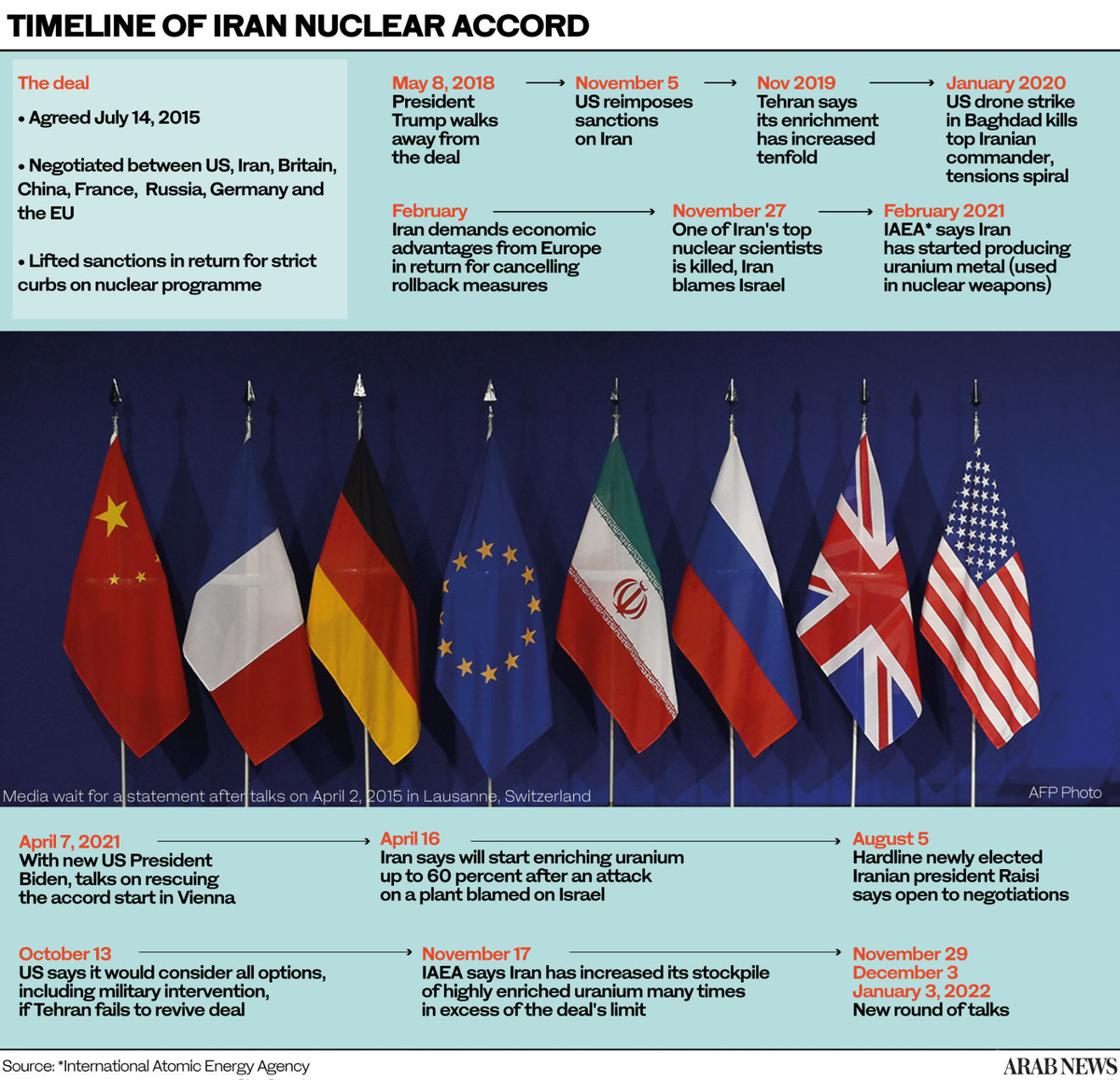
An informed source has told Arab News that the nuts and bolts of a new arrangement between Washington and Tehran are now primarily in place.
One remaining obstacle is a demand by Iran that the next US president should not walk out of any new deal. Whether the US could honor such a pledge remains unclear. In 2018, US President Donald Trump scorned and abandoned the “one-sided deal.” Iran responded by ceasing its cooperation with international inspectors that kept tabs on its nuclear infrastructure and ramping up its enrichment efforts.
The current president, Joe Biden, has staked much of his first term foreign policy legacy on reinstating the deal, formally known as the Joint Comprehensive Plan of Action with Iran. This has earned the opprobrium of regional allies as his officials persist with talks with Iranian hardliners.
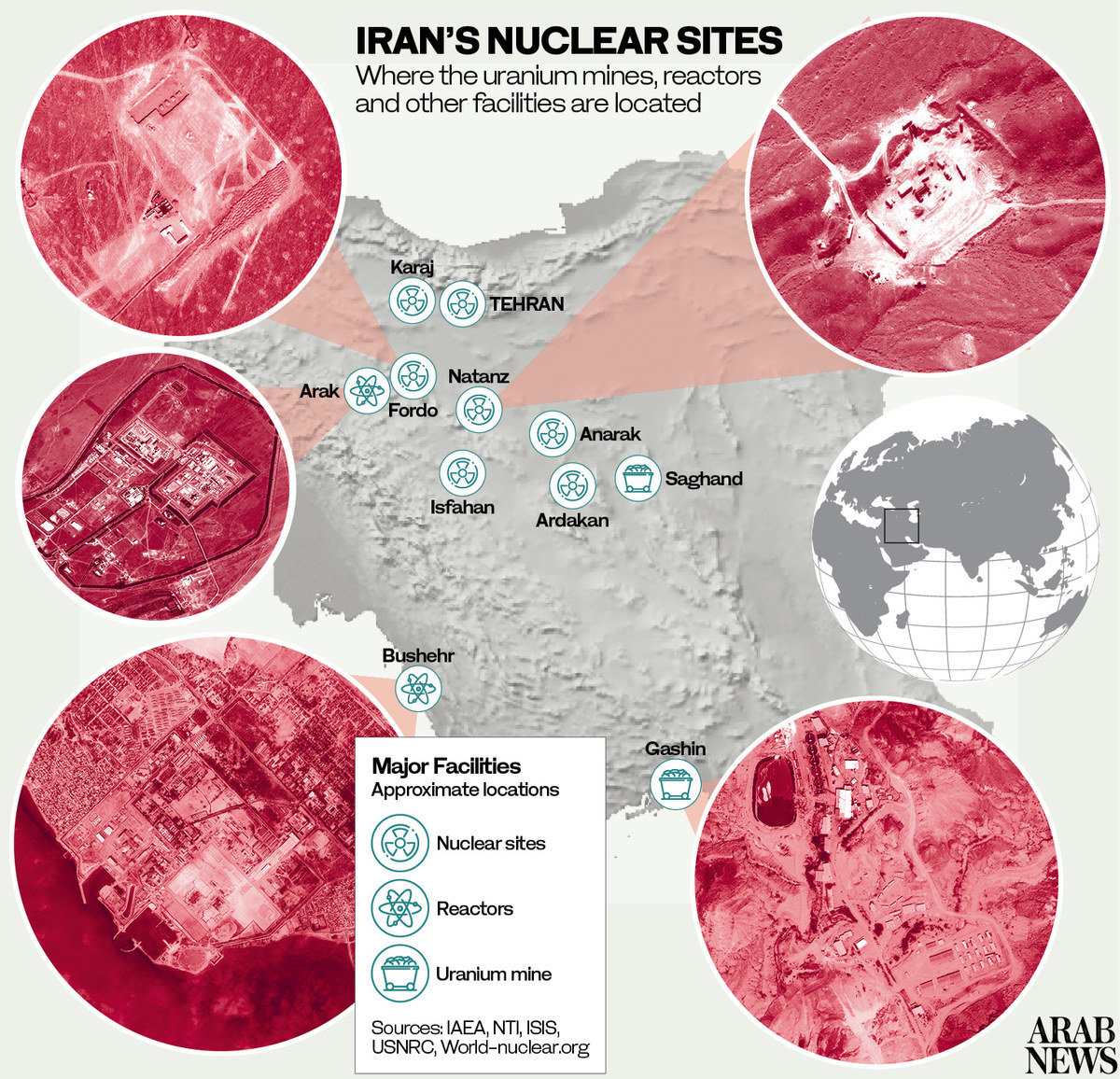
Entifadh Qanbar, a former Iraqi spokesperson, said: “Iranians like to twist arms in negotiations. Robert Malley seems to be trying hard to appease the Iranians and, unfortunately, has the upper hand in the Biden administration when it comes to the negotiations. The Biden administration is coming off weak, especially in light of the chaos in Afghanistan after the US withdrawal.”
Dr. Ras Zimmt, an expert on Iran at the Institute for National Security Studies in Israel, said: “Looking at the recent attacks on Syria and Iraq, one of the main reasons it happened, I believe, is the second anniversary of the killing of Qassem Soleimani.” He said this hung a pall over the negotiations from the Iranian side.
Washington’s response to the attacks on US forces has been a far cry from Trump’s reaction as Iran-backed rioters approached the US embassy in Baghdad two years ago, when he sanctioned the assassination of Soleimani.
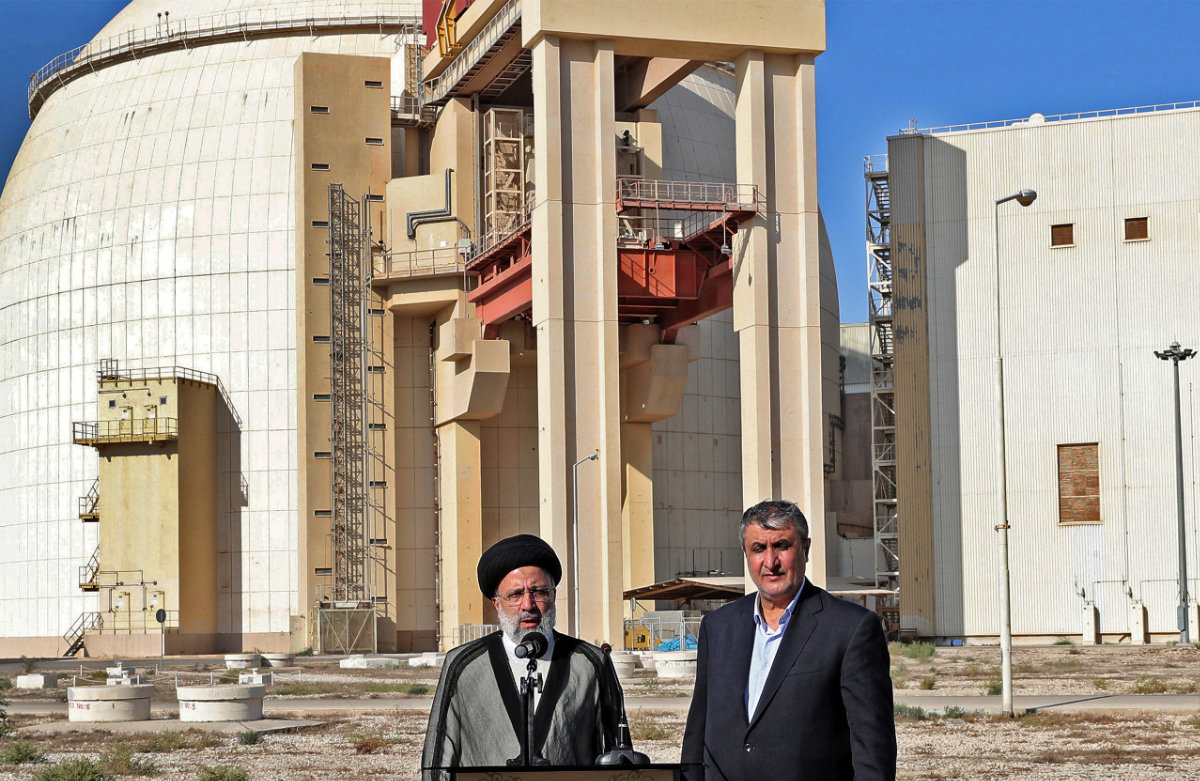
Iran's President Ebrahim Raisi (R), accompanied by chief of the Atomic Energy Organization of Iran Mohammad Eslami, speaks to the media during a visit to the Bushehr Nuclear Power Plant, southeast of Tehran. (Photo by Iranian Presidency / AFP)
Iranian president Ebrahim Raisi spoke on the anniversary of Soleimani’s death at a ceremony in a large prayer hall in Tehran. The president vowed revenge on Donald Trump, calling him the primary “aggressor and assassin.”
The Iranian general and his ally, Abu Mahdi al-Muhandis, who was also killed in the drone strike in January 2020, had been masters of the art of wielding powerful proxy forces in Iraq, Syria, Lebanon, and Yemen and also of bombing the US into concessions with low intensity – but high political impact – rocket fire.
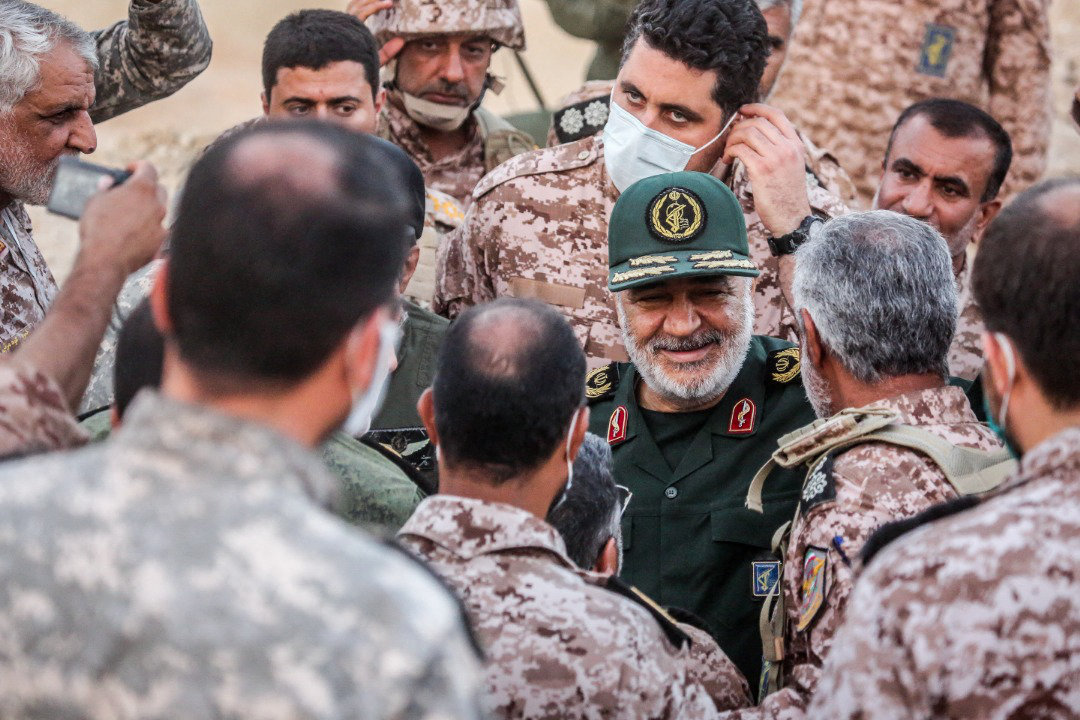
Gen. Hossein Salami (C), head of Iran's Quds Force, attending military exercises dubbed Payambar-e-Azadm held in three provinces last December. (SEPAH NEWS handout photo via AFP)
On Wednesday, an armed pro-Iranian militia called Gassem Al-Jabarayn claimed responsibility for Iraq’s drone and rocket attacks, which caused no casualties. The group posted online that they vow to maintain their attacks until there was a complete US withdrawal from Iraq. This group is believed to be a cover for one of the main Iranian proxies, whose influence in Iraq remains extensive as the central government continues to struggle to assert control.
Analysts in the region say the frequency of attacks in Iraq and Syria tends to increase whenever a weighty political decision draws near. Few such decisions have carried more consequences than whether to re-engage with Iran – an actor widely distrusted by the GCC and the rest of the Middle East.
To do so could be the biggest gamble of Biden’s presidency, potentially destabilizing bedrock security arrangements with core US allies, who remain averse to such a move without stringent restrictions to prevent even clandestine efforts to build nuclear weapons.
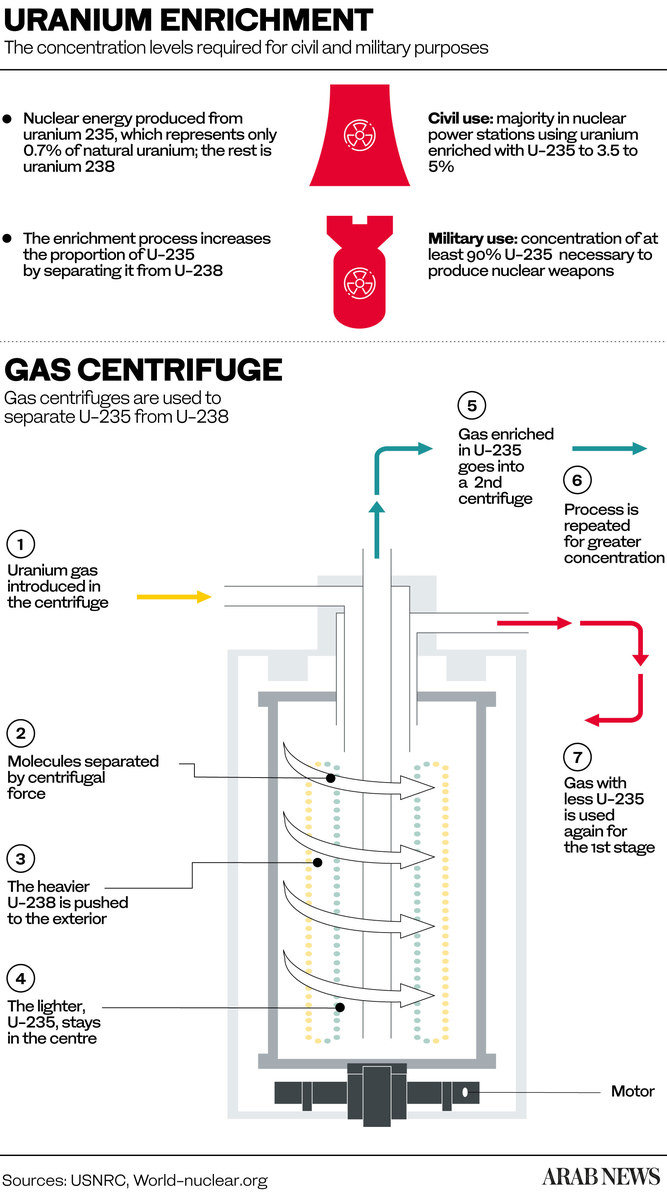
However, other commentators have played down the impact of the attacks on the Vienna talks.
Mohanad Hage Ali, director of communications and fellow of Carnegie Middle East Center, said: “These attacks are directed to serve an internal (Iranian) purpose and have little military significance given the absence of serious casualties. They are more useful in justifying the lack of reprisals for major attacks against Iranian forces and their militias.
“I see them as ineffective in pushing for a change in Vienna as compared to the actual progress in Iran’s nuclear program.”
Rasha Al-Aqeedi, an Iraqi researcher on militancy and ideology, said: “The recent attacks are unlikely to achieve concessions given their marginal impact on US personnel and facilities.”
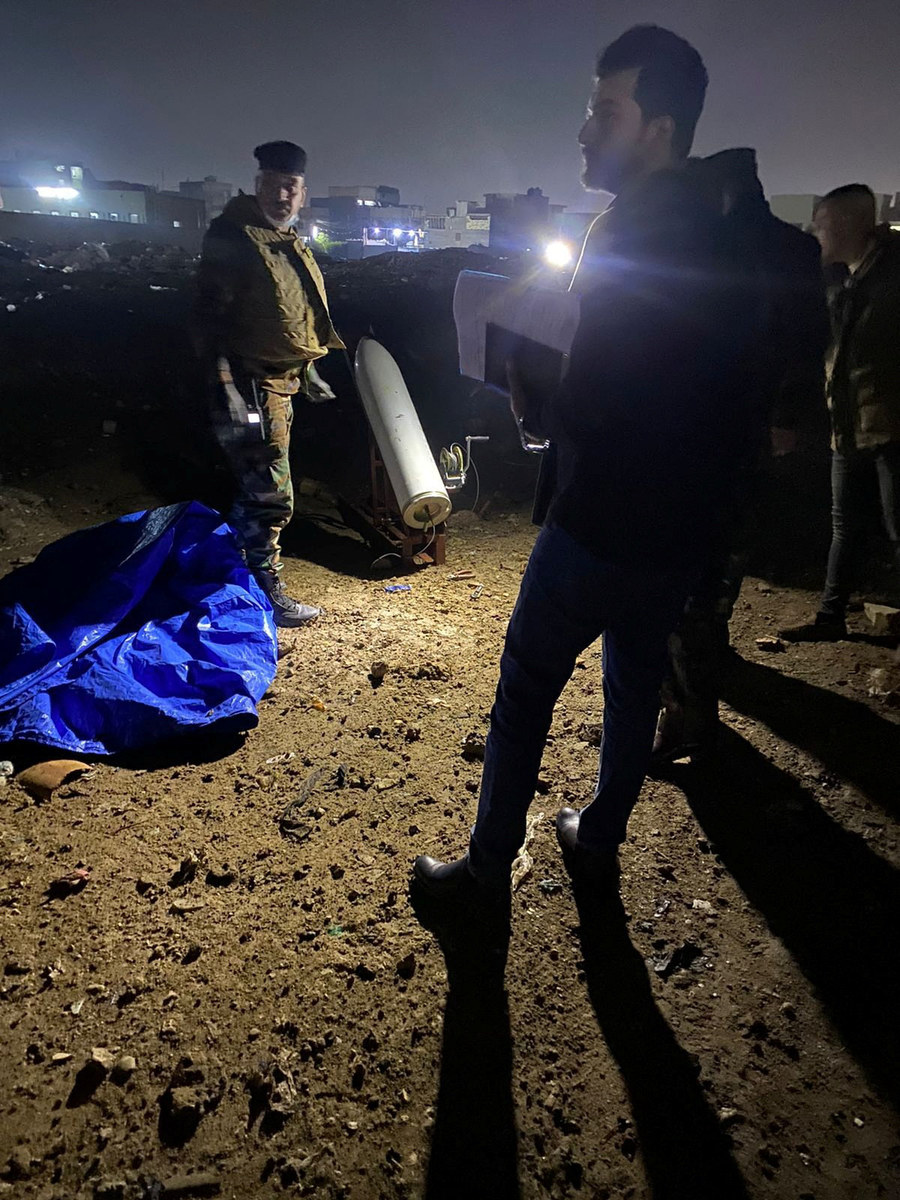
Iraqi troops inspect an unfired Katyusha rocket during a rocket attack on a military base hosting US forces near Baghdad's international airport on Jan. 5, 2022. (Iraqi Media Security Cell/Handout via REUTERS)
Pentagon press secretary John Kirby blamed the attacks on a combination of hostility toward Washington’s continued presence in Iraq and the anniversary of Soleimani’s death.
Whether the rocket fire improves Iran’s hand is open to contention. However, even the perception Iran aims to create of being able to bomb itself into a better bargaining position acts as a fillip to the country’s negotiators, who have long touted the virtues of “strategic patience” over the capriciousness of US policy.
As the latest round of talks resumed, the US special envoy for Iran was in Saudi Arabia this week to talk with senior officials. Gulf countries retain a skeptical line on Iran, despite having embarked on a series of regional discussions at an intelligence level last year.
Central to Saudi concerns is that Iran has refused to use the Vienna talks to discuss its ballistic missile program or its interventions across a region still reeling from decades of war and insurrection — much of it Iranian-led.
“If the US does not maintain a tough hand, the region will sink further,” said a senior Iraqi official, “This is not a time for weak hearts.”
























